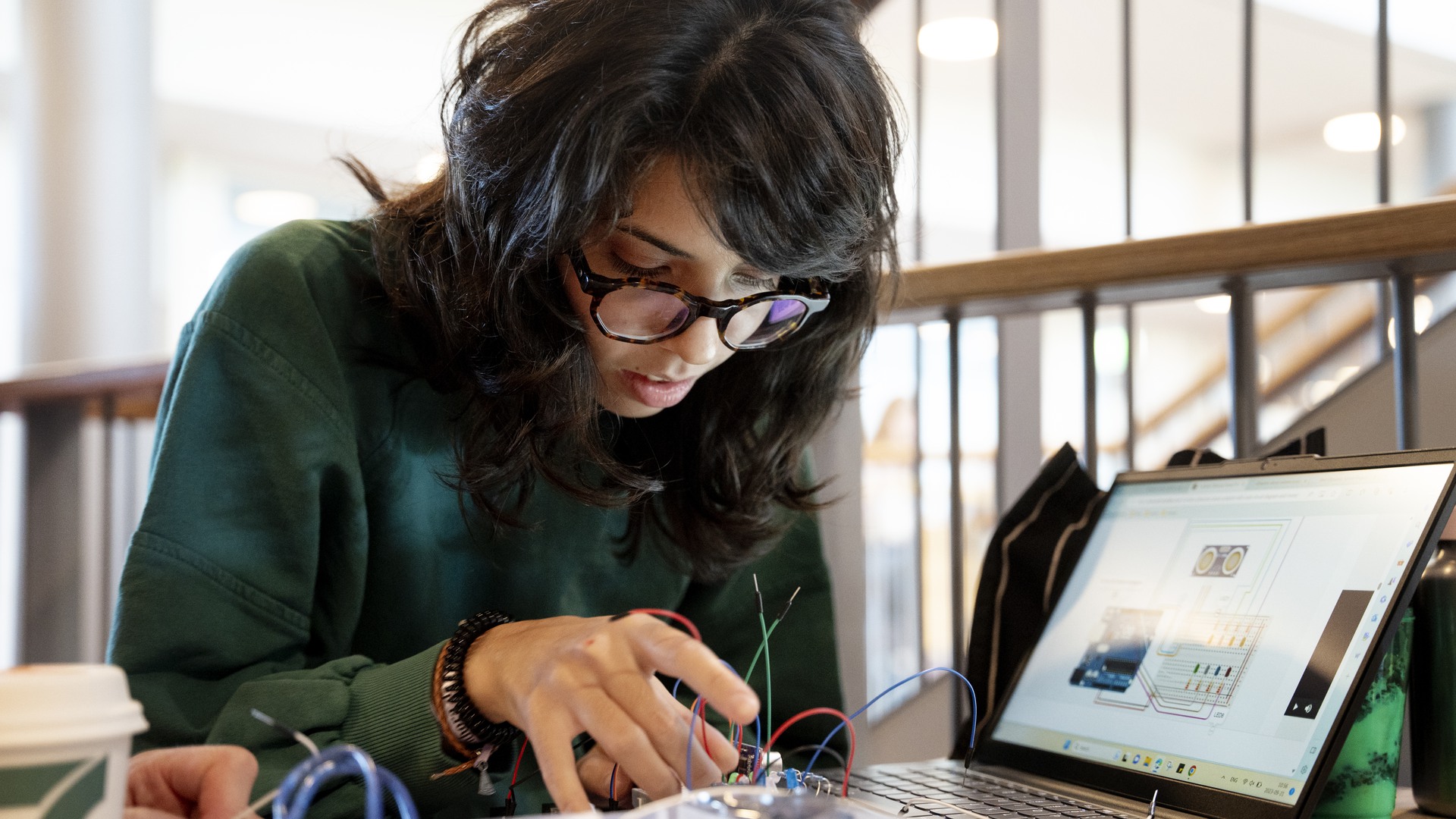A unique programme focusing on the main technological aspects of IoT, including human factors, innovation and business models
Romina Spalazzese is an associate professor in computer science and has been involved in the development of the Computer Science: Internet of Things master’s programme.
Who should apply to this master’s programme?
Students and practitioners who want to learn, upgrade, update or expand their competences in the field of the Internet of Things.
What makes this programme unique?
Computer Science: Internet of Things is the only master's education programme in Sweden dedicated to IoT. This programme has a unique focus on the main technological aspects relevant for IoT system developers, while also including human factors as well as innovation and business models.
This programme includes topics that are key elements of the entire IoT value chain. These include connected devices with limited resources; new computing paradigms; user experience for IoT; artificial intelligence (AI) and data management for IoT; software architecture and security for IoT; innovation; and business models.The programme includes both theoretical and practical elements through projects and theses in collaboration with industry and society at large.
In what ways do the knowledge and skills taught in the programme prepare students for the job market?
When we created this programme we gathered insights through a collaboration with companies working within the IoT sector. What we learned was that it is very difficult to identify and recruit students that have skills in the complete IoT value chain. This includes people who know how to involve the individual in the loop while at the same time are aware about business aspects and needs.
This programme will be highly useful for the Swedish industry in terms of the IoT knowledge and skills of our students. They will help companies to develop products and services and stay globally competitive. Moreover, these same companies see value in collaborating with this master's programme. Through various activities companies will develop close connections to our students, for example by giving guest lectures and hosting thesis projects.
In short, based on the input from the companies involved, we are confident that this programme meets a demand in the labour market. Our graduating students will be highly employable not only in industry but also in public organisations. The rapid development of different IoT-based Smart Cities and e-health applications will mean that our students have professional opportunities that both in the private and public sectors.
Why should students choose to study at Malmö University?
There are at least five very good reasons for why students should choose Malmö University! One is the high quality education we offer. Another is our well-equipped facilities located in the city centre. A third one is that we are located in the Öresund region, which is home to many information and communications technology companies. The region is thus a hub from an academic, industrial, and innovation point of view. A fourth reason is that Malmö University offers an international and welcoming environment rich in valuable diversity. The fifth reason is that the University is located in a bike-friendly city that is also very well connected both nationally and internationally through trains and airports. The Copenhagen airport is only around thirty minutes from the Malmö central station.
How does the programme prepare students for future doctoral studies?
This programme is very well connected to the Department of Computer Science and Media Technology research environment in general and, in particular, with the Internet of Things and People (IoTaP) Research Center. Among the alternatives for postgraduates that we currently offer at Malmö University is a PhD programme in Computer Science. These PhD student positions would be very suited for students of the programme.
In particular, through its course topics and formats, the programme constitutes a natural and great locus with the IoTaP core research areas, namely Embedded Intelligence and Interaction Technology.
This programme provides great opportunities to meet and be in close contact with both senior and junior research staff, both PhD students and postdocs, but also industry practitioners. The programme, by design, involves research and practice related activities in a number of different courses. This is particularly evident in the second year and the IoT innovation project and master thesis courses.




